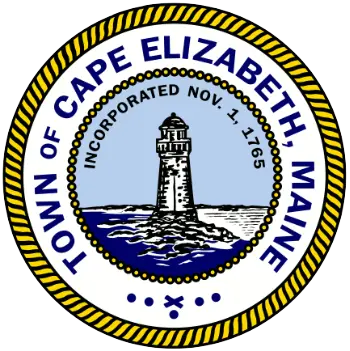Published on February 09, 2022

The Town of Cape Elizabeth's issuance of a Request for Proposals (RFP) to perform a Housing Diversity Study did not generate any proposals by the January 7, 2022 deadline. During the February 7, Town Council workshop the council reviewed possible explanations for the lack of response, as well as options for moving forward.
In a January 10 Memo from Town Planner Maureen O'Meara, several factors that might have influenced the outcome were listed. The first takes into consideration that the budgeted amount of $20,000 to perform the study is not competitive. According to O'Meara, South Portland is completing a similar study with a smaller scope for $30,000. In addition, all sectors of the economy are experiencing a labor shortage. As a point of reference, O'Meara cited that the recently issued Wireless Infrastructure Market Augmentation Study (Wima) received only two proposals, "One from a west coast consultant with local ties to Cape Elizabeth at the budget cost, and a second from Florida at more than twice the budget of $15,000." Furthermore, the political tensions related to the nature of the study within the Cape Elizabeth community could be dissuading possible applicants. Lastly, the time of year in which the RFP was due and the tight scheduling of the project may have limited the pool of potential consultants. O'Meara recommends that if the council chooses to reissue the RFP that a significantly increased proposed budget should be considered. "At a minimum, we should price it at $30,000; significantly increase your budget and hope that you land on the right amount by getting competitive proposals," O'Meara said.
In reviewing these factors the council considered the possibility of utilizing the stall to create a less stringent timeline and incorporate greater public input, in addition to increasing the budget. Chair Jeremy Gabrielson suggested the possibility of creating a citizen advisory committee to assist the council work through some of the options for increasing housing diversity once the data is made available. Councilor Susan Gilles mentioned that many people have told her that there is a need for an ad hoc committee that would allow citizens to have input into which types of housing options are considered, "Everyone has a different idea as to what we are looking for and we need a committee to solve that." Councilor Nicole Boucher said that she was not opposed to having an ad hoc committee or a regular committee, "But we need to know what is their charge? They need information in order for us to give them their charge and we don't have the information yet and that is where I am stuck with this." Boucher and councilor Penny Jordan brought up the possibility of having the DEI committee serve in this capacity. Councilor Timothy Reiniger brought up state bill LD 1673, which looks to create a comprehensive permit process for the construction of affordable housing, as potentially complicating Cape Elizabeth housing options should the bill pass. "My thought would be that it probably make more sense for the experts to help us after we see what legislation passes [or does not]. And in the meantime, put together a citizen committee," Reiniger said. Gabrielson responded by saying that, "A lot of what we would be looking for from the study would be a set of data points, since some of our current data is relatively old. Regardless of what comes out of the legislative session the data would be helpful, but I think the two [study and citizen committee] can go in tandem."
Councilor Gretchen Noonan expressed that in order for the council to provide the public with options to be considered, the council needs to have the data first, "I want to understand the options for a committee to review." For example, Noonan said, "I want to understand what our minimum lot size would look like." In terms have tasking the DEI Committee with this, Noonan said that while she would want input from the DEI, she would rather have a separate committee made up of additional community members who have a lot of expertise and passion with this subject. Gabrielson agreed and said that, "The advantage of an ad hoc committee would be that it would include a council member as a liaison, and maintaining that communication would be important."
In closing, Gabrielson surmised that it appeared that most of the council agreed, "To move forward with crafting an RFP with a longer timeline and a somewhat larger budget." In response, Reiniger said that he wanted to go on record as saying that, "My position would be to pause reviving the RFP too quickly in view of the state legislation." Gabrielson responded by tasking staff to move forward with an RFP, as well as tasking the Appointments Committee with forming an ad hoc committee.
